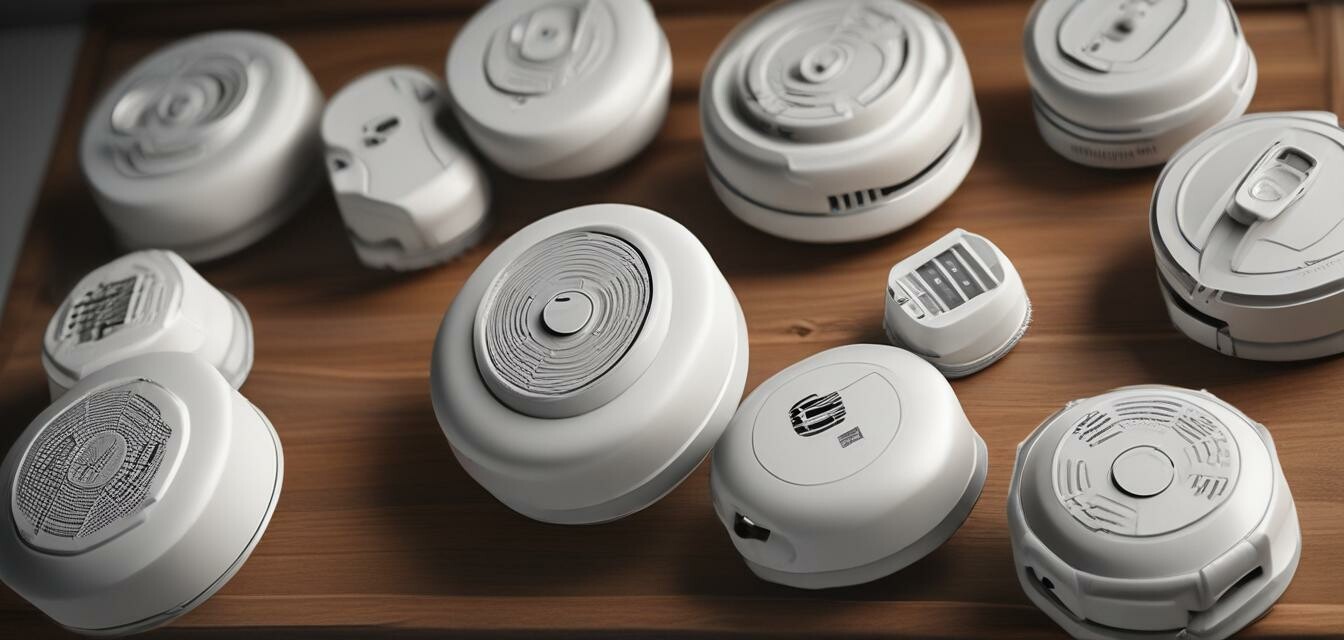
Everything You Need to Know About Smoke Alarms
Key Takeaways
- Choose smoke alarms that offer interconnected features for comprehensive coverage.
- Prioritize alarms with long-lasting batteries and advanced sensors.
- Proper installation and regular maintenance are crucial for optimal performance.
- Familiarize yourself with local regulations regarding smoke alarms.
- Understand the different types of smoke detectors available to make an informed choice.
When it comes to ensuring home safety, smoke alarms are indispensable devices that can save lives. In this comprehensive guide, we will walk you through everything you need to know about smoke alarms, including their key features, installation tips, and maintenance advice to keep your home secure.
Understanding Smoke Alarms
Smoke alarms are devices designed to detect smoke as an indicator of fire. They can be standalone units or part of a larger fire alarm system. Here are the primary types of smoke alarms:
| Type | Description | Best For |
|---|---|---|
| Ionic | Detects invisible particles of combustion | Fast-burning fires |
| Photoelectric | Detects larger particles from smoldering fires | Slow-burning fires |
| Dual Sensor | Combines both ionic and photoelectric technologies | General use |
Features to Look For
When selecting a smoke alarm, consider the following features:
- Interconnectivity: Alarms that interconnect can alert you throughout the house when one detects smoke. This is crucial for larger homes.
- Battery Life: Look for smoke alarms with long-lasting batteries. Models like the LEVSUPTY wireless interconnected smoke alarm feature 10-year lithium batteries.
- Photoelectric Sensors: These reduce the likelihood of false alarms, ensuring that they only activate in real emergencies.
- Volume: Choose smoke alarms with a loud enough alarm (at least 85dB) to wake you, even in a deep sleep.
- Ease of Installation: Many modern smoke alarms come with user-friendly installation methods that require no wiring.
Installing Your Smoke Alarm
Proper installation is critical for the efficacy of smoke alarms. Here are some tips:
- Install alarms near sleeping areas. This ensures you can hear them during the night.
- Place at least one smoke alarm on every level of your home.
- Follow manufacturer instructions for mounting. Ensure it’s securely attached.
- Avoid placing alarms in areas with high humidity, like kitchens and bathrooms, to reduce false alarms.
- Test alarms once a month to ensure they are functioning correctly.
Maintenance Tips for Smoke Alarms
To keep your smoke alarms in excellent working condition, consider the following:
- Replace batteries at least once a year, or opt for models with 10-year batteries.
- Clean your smoke alarms with a vacuum to remove dust and debris that can inhibit functionality.
- Replace any smoke alarms older than 10 years, as their reliability decreases over time.
LEVSUPTY Wireless Interconnected Photoelectric Smoke Alarm
Featuring a 10-year lithium battery and reliable photoelectric sensor technology, this smoke alarm is designed for safety and longevity.
Learn MoreLocal Regulations and Recommendations
Your local regulations may dictate specific requirements for smoke alarms. Ensure you are familiar with these, especially if you reside in areas like Queensland, where new laws govern smoke alarm installation. Regularly check for updates to keep your home compliant.
Common Questions About Smoke Alarms
Here are some frequently asked questions regarding smoke alarms:
- How often should I test my smoke alarm? It’s recommended to test your smoke alarms once a month.
- What should I do if my smoke alarm goes off? If it’s a false alarm, use the hush button. If it’s not, evacuate the premises immediately.
- When should I replace my smoke alarm? Replace your smoke alarm every 10 years, or sooner if it starts to malfunction.
Conclusion
Smoke alarms are an essential part of home safety. By choosing the right model, installing it correctly, and maintaining it regularly, you can ensure the safety of your home and loved ones. Make informed choices using the guidance provided in this buying guide, and remember to stay updated on local laws and regulations.
Tips for Beginners
- Start with basic alarm features and gradually upgrade as needed.
- Keep a record of installation dates and maintenance activities.
- Make sure all household members know what the alarm sounds like and the procedure to follow in case of an alarm.
